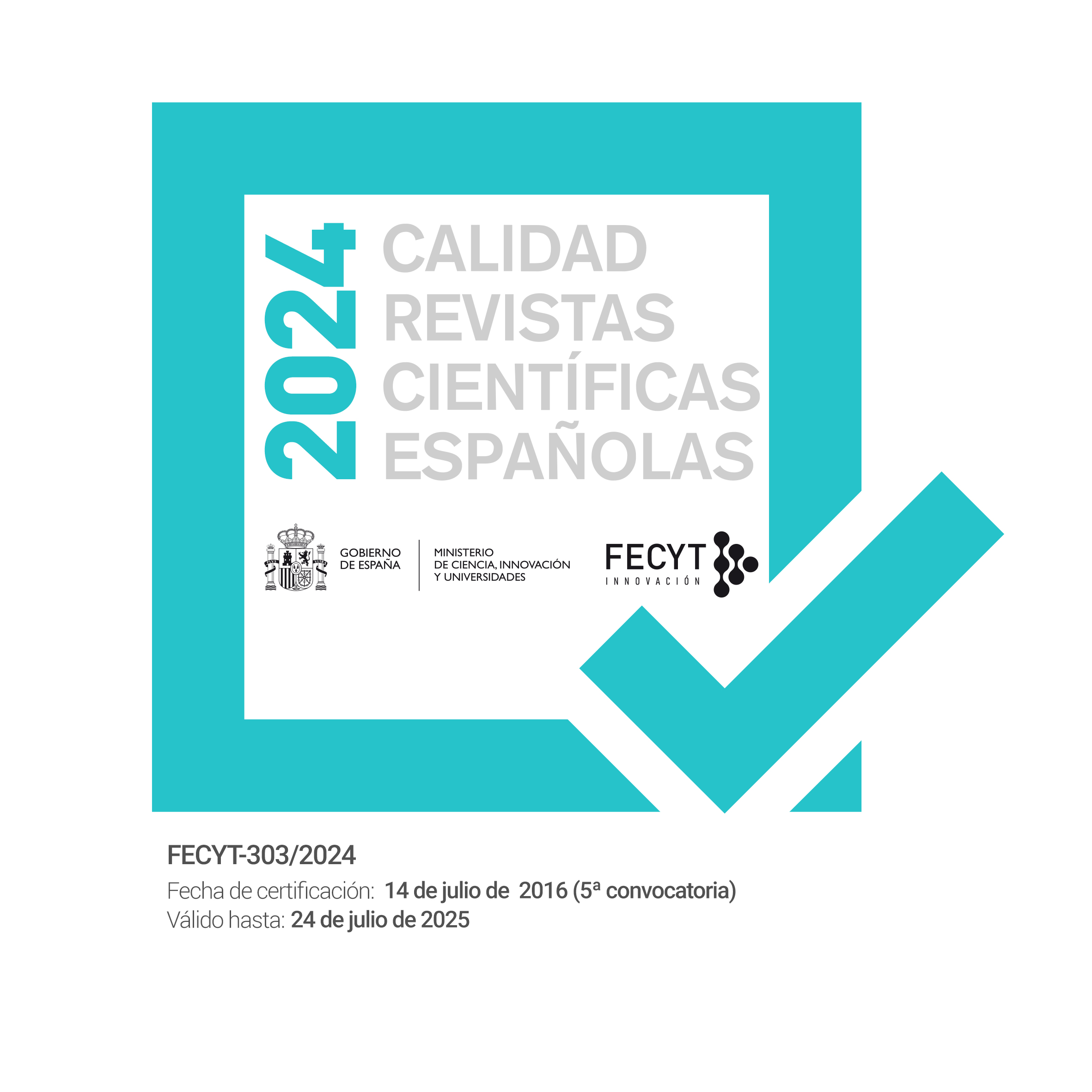Plan de continuidad académica ante la contingencia del COVID-19: Estudio comparado entre México y España
DOI:
https://doi.org/10.5944/reec.42.2023.31318Palabras clave:
Plan, universidad, educación comparada, profesor, COVID-19, España-MéxicoResumen
Ante la contingencia del Covid-19, las diversas universidades públicas y privadas tuvieron que suspender todas las actividades presenciales y desarrollar planes de continuidad académica de forma diferente, con el objetivo de asegurar la permanencia de la formación universitaria. En este sentido, este trabajo presenta los resultados de un estudio comparado en relación con los planes de continuidad académica desarrollados por instituciones de educación superior privadas, a partir de la pandemia del Covid-19. Se utilizó un diseño cualitativo, a través de la aplicación de entrevistas semiestructuradas online a profesores universitarios de la Universidad de Monterrey (México) y de la Universidad de Francisco de Vitoria (España). El análisis se realizó desde una perspectiva comparada para establecer convergencias y divergencias, a partir de cuatro categorías de análisis: acceso, disponibilidad, uso y formación de las Tecnologías de Información y Comunicación; actividades académicas; proceso de enseñanza-aprendizaje; continuidad académica presencial. Los resultados revelaron que existen convergencias en las cuatro categorías analizadas en ambos contextos universitarios. Lo anterior permite evidenciar que los planes de continuidad académica en la Universidad de Monterrey y la Universidad Francisco de Vitoria tienen características y estrategias similares. De igual forma, se demuestra que ambas instituciones privadas desarrollaron acciones al interior de su administración para dar respuestas de forma rápida, pertinente y en coordinación con los diferentes departamentos de la institución. Asimismo, se evidencia que en el caso de las dos universidades se tenía implementados proyectos de mejora continua antes de la contingencia, lo que permitió una respuesta de forma inmediata a la continuidad de las actividades académicas. Finalmente, este estudio pretende contribuir a la literatura, en relación con la efectividad de los planes de continuidad académica en universidades privadas durante la contingencia.
Descargas
Citas
Alcántara, A. (2020). Educación superior y COVID-19 : una perspectiva comparada. UNAM, Instituto de Investigaciones Sobre La Universidad y La Educación, 75–82. https://www.cencos22oaxaca.org/wp-content/uploads/2020/08/educacion_pandemia.pdf#page=75
Area, M., & Adell, J. (2021). Digital technologies and educational change. a critical approach. REICE. Revista Iberoamericana Sobre Calidad, Eficacia y Cambio En Educacion, 19(4), 83–96. https://doi.org/10.15366/REICE2021.19.4.005
Artopoulos, A. (2020). COVID-19: ¿Qué hicieron los países para continuar con la educación a distancia? https://cms.argentinosporlaeducacion.org/media/reports/ArgxEduc_SolucionesEducativas_Coronavirus.pdf
Cabero, J. (2015). Reflexiones educativas sobre las tecnologías de la información y comunicación (TIC). Tecnología-Ciencia-Educación, 1, 19–27.
CEPAL-UNESCO. (2020). La educación en tiempos de la pandemia de COVID-19. https://www.siteal.iiep.unesco.org/respuestas_educativas_covid_19.
Coll. (2012). Aprender y enseñar con las TIC: expectativas, realidad y potencialidades. In Los desafios de las TIC para el cambio educativo (pp. 113–126). Organizacion de estados Iberoamericanos para la educacion, la ciencia y la cultura.
Díez, E., & Gajardo, K. (2020). Educar y evaluar en tiempos de cronoavirus_ la situación en España. REMIE Multidisciplinary Journal of Educational Research, 10(2), 102–134.
Gibbs, G. (2012). El análisis de datos cualitativos en investigación cualitativa (Ediciones Morata).
Hernández-Hernández, F., & Sancho-Gil, J. M. (2021). Students’ Experiences in Suddenly Transformed Living and Educational Environments by COVID-19. Frontiers in Psychology, 12. https://doi.org/10.3389/fpsyg.2021.782433
Maldonado, G., Miró, M., Stratta, A., Barreda, A., & Zingaretti, L. (2020). La Educación Superior En Tiempos De Covid-19: Análisis Comparativo México-Argentina. Revista de Investigación En Gestión Industrial, Ambiental, Seguridad y Salud En El Trabajo-GISST, 2(2), 35–60.
Malo Álvarez, S., Maldonado-Maldonado, A., Gacel Ávila, J., & Marmolejo, F. (2020). Impacto del COVID-19 en la educación superior de México. Revista de Educación Superior En América Latina, 8, 9–14. https://doi.org/10.14482/esal.8.378.72
Pedró, F. (2020). COVID-19 y educación superior en América Latina y el Caribe: Efectos, impactos y recomendaciones políticas. In Análisis Carolina. https://doi.org/10.33960/ac_36.2020
Quintana, A., & Montgomery, W. (2006). Metodología de Investigación Científica Cualitativa (UNMSM).
Quintana, I. (2020). Covid-19 y Cierre de Universidades ¿Preparados para una Educación a Distancia de Calidad? Revista Internacional de Educación Para La Justicia Social, 9(3), 12.
Román, R. (2020). Evaluación del aprendizaje en línea en tiempos del COVID-19. Observatorio de Innovación Educativa Del Tecnológico de Monterrey.
Santori, G., & Morlino, L. (1999). La comparación de las ciencias sociales (Primera edición). Alianza.
Silas, J., & Vázquez, S. (2020). El docente universitario frente a las tensiones que le plantea la pandemia. Resultados de un estudio mexicano/latinoamericano. Revista Latinoamericana de Estudios Educativos, 50, 89–120.
Taylor, S. J., & Bogdan, R. (1987). Introducción a los métodos cualitativos de investigación La búsqueda de significados (E. Paidós (ed.)).
Tarrés, M. L. (2008). Observar, escuchar y comprender (Porrúa (ed.)).
UNESCO. (n.d.). La educación en tiempos de la pandemia de COVID-19. 2020.
UNESCO. (2020). COVID-19 educación superior: De los efectos inmediatos después.
UDEM. (2020). Universidad de Monterrey https://www.udem.edu.mx/es
UFV. (s.f.). Universidad Francisco de Vitoria. https://www.ufv.es/
Descargas
Publicado
Cómo citar
Número
Sección
Licencia
Derechos de autor 2022 Revista Española de Educación Comparada

Esta obra está bajo una licencia internacional Creative Commons Atribución-NoComercial 4.0.

Acknowledgement – Non Commercial (by-nc): Generation of derivated Works is allowed as long as a commercial use is not developed. The original work cannot be used with commercial aims.
This journal does not apply any fee to the authors by the filing or processing of articles.











